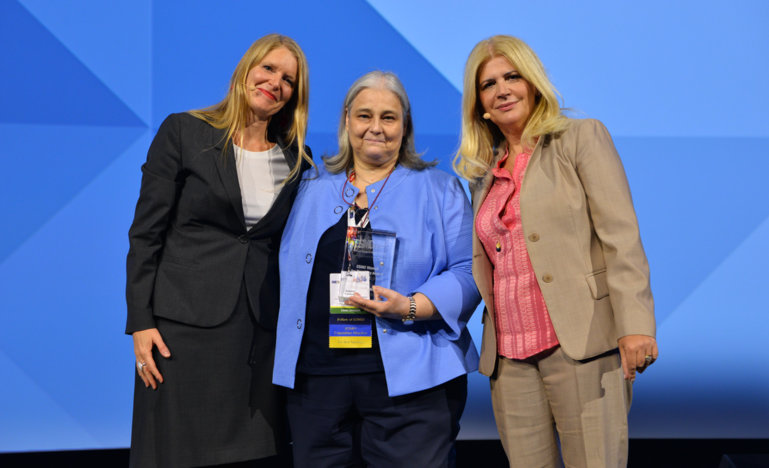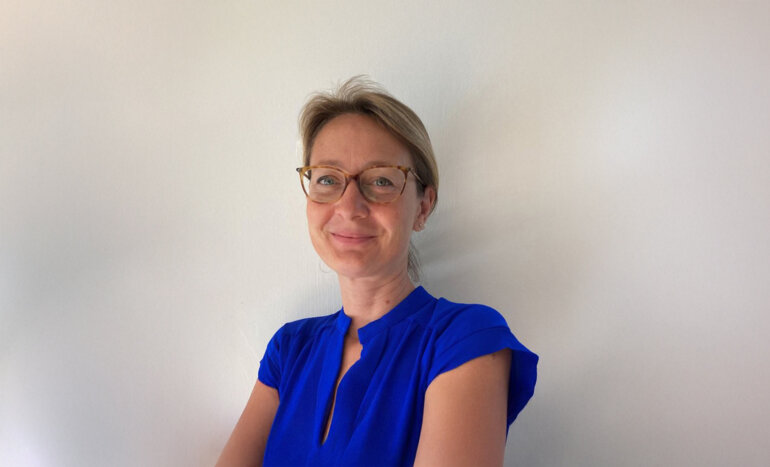According to this year’s ESMO Women for Oncology awardee Prof. Fatima Cardoso, steps forward in gender equality have been made, but progress is still slow
Recipient of this year’s ESMO Women for Oncology Award is Prof. Fatima Cardoso, Director of the Breast Unit, Champalimaud Clinical Center, Lisbon, Portugal and President of the ABC Global Alliance, who has dedicated her career to advancing the field of breast cancer research and management. The award was given in recognition of Cardoso’s commitment to become a leader and an inspiration to a whole generation of women in oncology.
How is greater involvement of women in oncology helping to progress cancer research?
Although there have been advances in the role of women in oncology, progress has been slow, particularly regarding women in leadership roles. I believe it is key that women support each other in the oncology setting and promote each other for leadership positions. I have tried to do this frequently throughout my career. Furthermore, women in these positions should be a true inspiration for the next generations. I was born in Africa, and raised and trained in a small South European country with a strong Latin tradition regarding the role of men and women in society. I hope that the story of my life and career can show to future generations that it is possible to overcome all these obstacles. Finally, I believe that having more women in leadership positions would help bring truly patient-centred medicine to the oncology field, and medicine in general. Personalised medicine should not only be driven by biology but should also be focused on the individual patient and thus his/her preferences must be taken on board at every decision point.
You have witnessed a substantial evolution in breast cancer management since you began practicing. What have been the key milestones in the last two decades?
When I completed my residency in medical oncology in 2000, the breast cancer research and treatment environment was very different to today. Back then, breast cancer clinical trials would enrol a large number of ‘all-comer’ participants without differentiating between breast cancer subtypes. We now recognise that each subtype responds differently to therapy and so the research arena has evolved to accommodate this knowledge. Consequently, we have swapped trials of several thousand participants for smaller studies in which patients are selected by a biomarker or at least by breast cancer subtype.
Reclassification of breast cancer into subtypes was made possible through information gained from sequencing the human genome and subsequently, the sequencing of many different tumours including all breast cancer subtypes. Now, everything we do in the breast cancer arena is based on the new breast cancer molecular classification.
The growth in availability of molecular information led to the search for biomarkers in breast cancer. I believe that the development of prognostic biomarkers has been a great success, with huge improvements in the identification of risk biomarkers for relapse and death. These prognostic biomarkers facilitate us in sharing management decisions between the clinician and the patient.
How have you contributed to this paradigm shift?
A key clinical study I have been involved with for about 15 years is the Microarray In Node-negative and 1 to 3 Positive Lymph Node Disease may Avoid ChemoTherapy (MINDACT) trial, which was one of the first prospective clinical validations of a genomic tool – the MammaPrint 70-gene signature. The trial explored whether MammaPrint could be used as a prognostic tool in clinical practice and help patients safely avoid adjuvant chemotherapy. Based on this trial, we now know that a substantial proportion of patients with ER-positive, HER2-negative early breast cancer can avoid adjuvant chemotherapy if their genomic risk by MammaPrint is low, even if their clinical risk is high; this is particularly true for post-menopausal women.
Although this biomarker has the strongest level of evidence, it is not widely used due to accessibility issues. For me, access and equity in high quality cancer care is the major challenge in oncology today. This is particularly true for specific groups of patients who, traditionally, are ‘forgotten’, such as those with metastatic breast cancer. For this reason, we have created the Advanced Breast cancer Global Alliance (www.abcglobalalliance.org), which has over 200 members in more than 90 countries worldwide and brings all stakeholders together to improve the lives of these patients.
What are the key challenges and opportunities in treating breast cancer today?
For years, many research groups, including my own, have been involved in translational research and efforts to find predictive biomarkers. However, apart from HER2 and hormone receptors, the search for predictive biomarkers has not been as successful as for prognostic biomarkers. We are still unable to predict with certainty which specific treatment would lead to optimal outcomes in each patient. I believe now is the time to explore other avenues, such as artificial intelligence (AI) to achieve personalised medicine in breast cancer. For instance, at the Breast Unit of the Champalimaud Clinical Center, our team has developed a simulator to help patients visualise their physical appearance if they underwent different surgical procedures. The next phase of this ongoing research will lead to breast surgery with augmented reality, improving both efficacy and quality of life related to breast cancer surgery. AI technology is being applied to many other disciplines involved in cancer management such as imaging (radiomics), pathology (pathomics) and more recently, medical oncology with the development of decision support systems and analysis of big data to complement clinical trial data. In my opinion, the present and future focus should very much be on using new technologies in different disciplines to help make shared and truly personalised decisions in breast cancer management, for patients with both early-stage and metastatic disease.
Don't miss:
Cardoso F. Gender gap and women’s rights: One step forward, two steps back?! ESMO Congress 2022
ESMO Women for Oncology Award Lecture, 09.09.2022, h. 12:00 – 13:45, Paris Auditorium
Women for Oncology Forum. ESMO Congress 2022
Special Session, 11.09.2022, h. 14:45 – 16:45, Urval Auditorium







